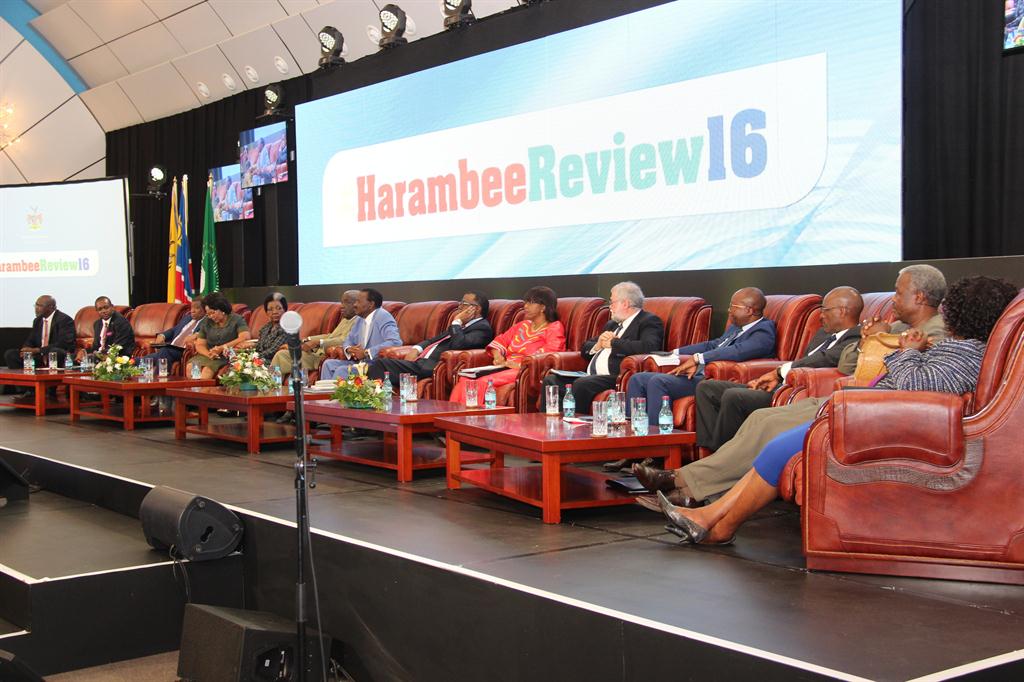Harambee transparency target missed
The latest corruption perception rankings by an international graft watchdog show that Namibia has missed the Harambee Prosperity Plan (HPP) target of being the most transparent country in Africa, as measured by Transparency International, by 2020.
This is according to the executive director of the Institute for Public Policy Research in Namibia (IPPR), Graham Hopwood, with regard to Namibia's ranking on the 2019 Corruption Perception Index by Transparency International.
A total of 180 countries were ranked on how corrupt their governments and public services appear to be. The ratings are based on findings by experts and public opinion studies. A score of 100 is “very clean” and 0 is highly corrupt.
Namibia fared slightly worse than the previous year, ranking 56th globally with a score of 52. In Africa, Namibia was tied in fifth place with Mauritius.
In the 2018 index Namibia was ranked 52nd globally, with a score of 53, and fifth in Africa.
Hopwood said the country's failure to improve its ranking is an indication that much of the government's concern about corruption has been rhetorical rather than based on action.
“In fact, Namibia is now ranked as the joint fifth least corrupt country in Africa after Seychelles, Botswana, Cape Verde and Rwanda. We are joint fifth with Mauritius - a worse position than at the outset of the Harambee period when we were fourth in Africa,” Hopwood said.
According to him the IPPR has set out an eight-point plan through which President Hage Geingob and his cabinet can tackle corruption more effectively.
“If even some of these actions were taken, we believe it would lead to Namibia rising on the Transparency International rankings.”
Some of the eight points are: removing all those convicted of corruption from the Swapo list; instituting an official inquiry into the allocation of fishing quotas and rights headed by a judge or senior lawyer; and making public the ministers' declarations of interests and assets (at the moment they are made privately to the president).
Other points include implementing the Whistleblower Protection Act, which was passed more than two years ago but never operationalised; committing to establishing a public beneficial ownership register for all extractive industries such as mining, oil, gas and fisheries; and committing Namibia to joining the Extractive Industries Transparency Initiative (EITI), which is the global standard for good governance of oil, gas and mineral resources.
According to Hopwood the IPPR also suggested that a world-class access to information (ATI) law should be tabled in parliament soon and that Geingob should again publicly declare his assets and interests, as he did in 2015.
Namibia's corruption score has stagnated since 2015, when it scored 53 points on the index. The country averaged 48.21 points from 1998 until 2016, reaching an all-time high of 57 points in 2002 and a record low of 41 points in 2004.
ELLANIE SMIT
This is according to the executive director of the Institute for Public Policy Research in Namibia (IPPR), Graham Hopwood, with regard to Namibia's ranking on the 2019 Corruption Perception Index by Transparency International.
A total of 180 countries were ranked on how corrupt their governments and public services appear to be. The ratings are based on findings by experts and public opinion studies. A score of 100 is “very clean” and 0 is highly corrupt.
Namibia fared slightly worse than the previous year, ranking 56th globally with a score of 52. In Africa, Namibia was tied in fifth place with Mauritius.
In the 2018 index Namibia was ranked 52nd globally, with a score of 53, and fifth in Africa.
Hopwood said the country's failure to improve its ranking is an indication that much of the government's concern about corruption has been rhetorical rather than based on action.
“In fact, Namibia is now ranked as the joint fifth least corrupt country in Africa after Seychelles, Botswana, Cape Verde and Rwanda. We are joint fifth with Mauritius - a worse position than at the outset of the Harambee period when we were fourth in Africa,” Hopwood said.
According to him the IPPR has set out an eight-point plan through which President Hage Geingob and his cabinet can tackle corruption more effectively.
“If even some of these actions were taken, we believe it would lead to Namibia rising on the Transparency International rankings.”
Some of the eight points are: removing all those convicted of corruption from the Swapo list; instituting an official inquiry into the allocation of fishing quotas and rights headed by a judge or senior lawyer; and making public the ministers' declarations of interests and assets (at the moment they are made privately to the president).
Other points include implementing the Whistleblower Protection Act, which was passed more than two years ago but never operationalised; committing to establishing a public beneficial ownership register for all extractive industries such as mining, oil, gas and fisheries; and committing Namibia to joining the Extractive Industries Transparency Initiative (EITI), which is the global standard for good governance of oil, gas and mineral resources.
According to Hopwood the IPPR also suggested that a world-class access to information (ATI) law should be tabled in parliament soon and that Geingob should again publicly declare his assets and interests, as he did in 2015.
Namibia's corruption score has stagnated since 2015, when it scored 53 points on the index. The country averaged 48.21 points from 1998 until 2016, reaching an all-time high of 57 points in 2002 and a record low of 41 points in 2004.
ELLANIE SMIT





Comments
Namibian Sun
No comments have been left on this article